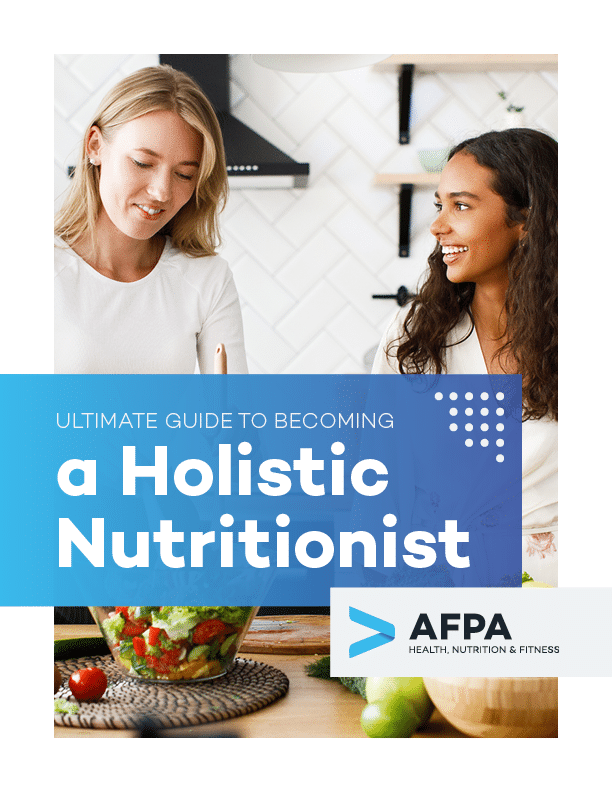In the United States, nutrition practice laws vary by state. Depending on the degree or certificate you have obtained, the type of practice you can open and the type of advice you can give change based on where you live.
You may want to be clear on what the nutrition practice laws are because,
- You have just received your nutrition certification and are wondering what you can and can’t do where you live.
- You are moving and want to know how your practice might change in your new home state.
- You are opening an online practice that offers services to clients in different states.
- You have another nutrition-related degree in addition to your certification and want to know how they complement each other.
- You are thinking about pursuing a nutrition certification, and you want to know what employment and business opportunities might be open to you.

Get Your Free Guide to Becoming a Holistic Nutritionist
Learn about the important role of holistic nutritionists, what it takes to be successful as one, and how to build a lucrative, impactful career in nutrition.
Nutrition practice laws can be confusing. To clear things up, we’ve created a comprehensive infographic that summarizes what you can and can’t do by state.
If you want more detailed information on state-by-state nutrition laws, you can download AFPA’s Guide to State Nutrition Practice Laws.

In addition to this infographic, AFPA, together with the Council of Holistic Health Educators, has also created a complete guide to state-by-state licensure. This guide, which you can download here, explains the most important terminology.
In the guide, you will also learn whether you can sell or recommend dietary supplements and if there are pathways to an exemption from certain practice laws.

Get Your Free Guide to Becoming a Holistic Nutritionist
Learn about the important role of holistic nutritionists, what it takes to be successful as one, and how to build a lucrative, impactful career in nutrition.



